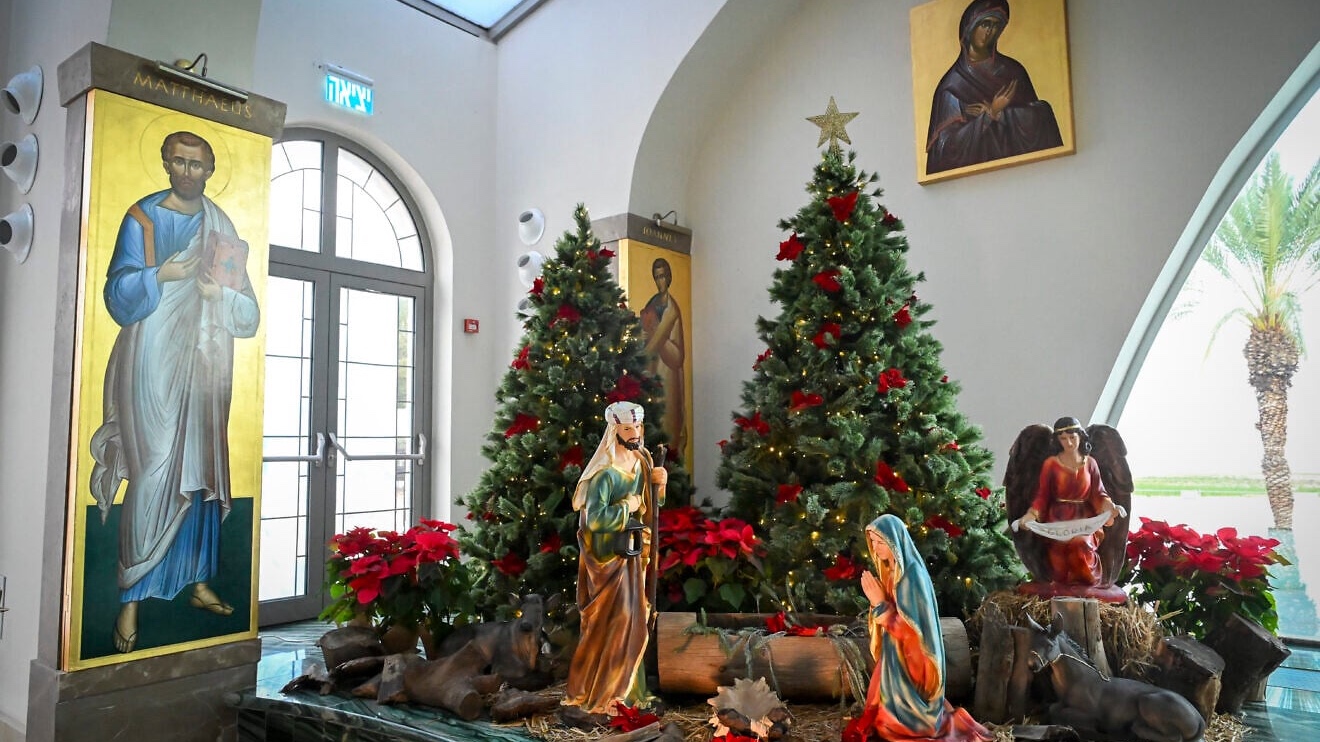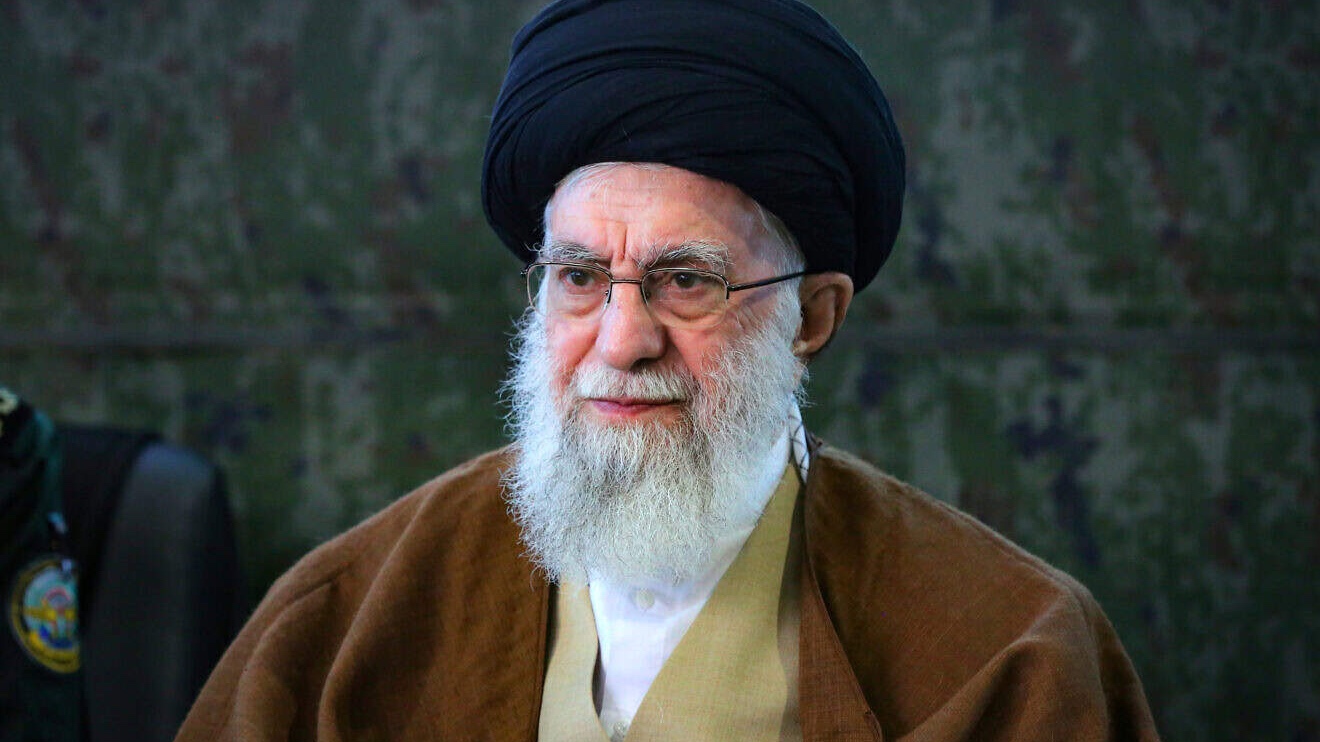Christmas is a Jewish festival. You might need to read that again if you haven’t already fallen off your chair.
It was the claim made last weekend by Jerusalem-based Rev Aaron Eime, who is well-versed in Hebraic traditions and has studied with rabbis for many years.
In his talk, given as part of a UK tour on behalf of the Church’s Ministry among Jewish people (CMJ), he actually demonstrated how both Hanukkah and Christmas are Jewish feasts, an idea likely to send shockwaves around the Judeo-Christian world. But stay with me, because it makes a lot of sense.
Perhaps the most surprising claim is that December 25th – long thought to be a date picked out of a hat to celebrate Christ’s birthday or, worse, to chime in with pagan festivals – was deliberately chosen as quite possibly the right day.
In any case, in deciding on when to mark the incarnation of Christ (i.e. when God took on human flesh), Jewish followers of Jesus, who of course made up all the first disciples, reckoned they already had a suitable feast – Hanukkah.
Also known as Chanukah, it was all about restoring light to a dark world through the re-dedication of the Temple, which took place on the 25th of Kislev (or December in the Gregorian calendar).
And Aaron assures us that there is plenty of evidence to suggest that Jesus was born on that day – yes, really!
It makes some sense because Jesus is the perfect embodiment of the Temple restoration; he referred to himself as the temple that would be raised up on the third day.
The Hanukkah menorah that is said to have kept on burning miraculously for eight days with only enough oil for a day was surely a picture of the ‘light of the world’ (John 8:12) who had come to rescue his people from their sin and waywardness just as the Maccabees had done less than two centuries earlier.
There is also a Jewish tradition that godly heroes die on the same day they were born. Moses, they say, went to be with the Lord on his 120th birthday.
In Jesus’ case, Aaron suggests, there is evidence that he was conceived at Passover – and, of course, he died at Passover. Which means that it was highly probable that he would indeed have been born ‘in the bleak midwinter’ (as the carol goes) – not at Tabernacles as many, including myself, have believed.
Some argue that the shepherds would surely have not been out in the cold with their sheep, but they are obviously not farmers!
Chanukah is a beautiful picture of how God brings light out of darkness; in fact, God often uses the very cause of the darkness to be the bearer of light, as with Bathsheba who continued the line of Messiah in spite of the fact that everything was wrong with the relationship that produced the child.
In the case of the tyrant Antiochus Epiphanes IV ruthlessly imposing Greek culture on the Jewish people, it led ultimately to the shocking blasphemy of sacrificing a pig on the Temple altar – on the 25th of Kislev – the same day the Temple was re-dedicated a few years later!
Satan did his worst but, through the godly Maccabees, God turned it into triumph. The cross may seem to have been the devil’s doing, but God meant it for our good and Jesus rose victorious.
Reverend Aaron concluded his talk by saying:
“There is nothing pagan about Christmas. It’s all about the redemption and birth of the Messiah. You can celebrate Christmas, and you should.”
(Aaron quoted sources including the Didache, a collection of early Christian writings, as well as the Gospel of James and the books of the Maccabees – part of the Apocrypha which, though not regarded as inspirational Scripture by Protestants, is nevertheless accepted by 400 million Orthodox Christians.)
Hanukkah is also a great reminder to Jewish people that God has their back, especially when a faithful remnant is prepared to make a stand for him. For example, it was in December 1917 (again, around the time of Hanukkah) when the Ottoman forces surrendered Jerusalem to the British, thus preparing the way for the modern State of Israel.
And it’s happening again in Britain today with the announcement that a cross-party group of MPs and peers is launching an investigation into the BBC’s coverage of Jews and Israel.
The probe comes after a Jewish Chronicle petition calling for an inquiry attracted over 10,000 signatures. It followed media watchdog Ofcom’s ruling that the BBC failed to observe its own editorial guidelines when reporting an antisemitic attack in London’s Oxford Street last Chanukah.
Jesus himself attended this festival, and it was there in the Temple courts that his opponents threatened to stone him for blasphemy in view of his Messianic claims to divinity (John 10:22-39).
On one occasion, Jesus said that the Temple would be destroyed, but would be raised again in three days (John 2:19), implying that his own body would replace the Temple.
George Frideric Handel, for one, had a ‘handle’ on what it was all about. He was so inspired by the gospel he believed that, in 1741, he wrote one of the greatest ever musical compositions – a 260-page oratorio on the Messiah written in just 24 days, gloriously portraying the wonder of Him who’s coming was prophesied throughout the Tenach (Old Testament).
Or as modern composer Stuart Townend has put it: “What a Saviour, what a friend, what a glorious mystery; Once a babe in Bethlehem, now the Lord of history.”
God came down at Christmas – and he came for you! As the carol mentioned earlier asks: “What can I give him, poor as I am? If I were a shepherd, I would bring a lamb; If I were a wise man, I would do my part; Yet what I can I give him, give my heart.”
Our late Queen loved to quote this, and it applies equally to all of us.
Charles Gardner is author of Israel the Chosen, available from Amazon; Peace in Jerusalem, available from olivepresspublisher.com; To the Jew First, A Nation Reborn, and King of the Jews, all available from Christian Publications International.















Very interesting article!
However, it seems that your/ our Messianic Jewish believers and friends have “enough” festivals to observe in the yearly calendar, that no matter what date is ascribed, “Christmas” is a no go for either acknowledgement or observance.
25 Kislev falls on 25 December? Till the 3rd century, no one had heard of the “Mess of Christ”.
The Anglo-Saxons celebrated the 25 Dec as “child’s day”, long before they came in contact with Christianity, because its roots are pagan. It originated in the worship of the Babylonian Messiah TAMMUZ, the son of Baal, whose birthday is the 25 Dec! It was the “Drunken festival of Babylon.” In Rome it was later celebrated as NATALIS INVICTI SOLIS = “The birthday of the unconquered Sun.”
God took on human flesh?? Is ISRAEL TODAY controlled by the Pope that it pushes idolatry without shame? Is it “not to offend our Christian readers”?
Your own folk was persecuted for deicide, for having allegedly killed God, and today you’re parroting the venom of your persecutors.
Usually the articles are brilliant, but to promote the diabolic junk of the “Whore of Babylon” in Jewish dress is beyond belief.
Shame on you!
There is no Biblical proof that Jesus was born on 25th December. This date was incorporated into the Christian calendar, as were a number of other pagan dates and festivals in order to “attract’ pagans into the Christian fold, but it goes back to ancient Babylon. It was the birth date of Tammuz (referred to in Ezekiel 8:14) the illegitimate son of Semiramis, the wife of Nimrod. Nimrod having died well before Tammuz’s’ birth. Semiramis was called ‘the queen of heaven’ by the Babylonians. Some ‘Christian’ groups refer to Mary (the mother of Jesus) as ‘the queen of heaven’ and also ‘the Mother of God’. How can the creator of the heavens and the earth be born of a woman? IMPOSSIBLE.
Another point to note is that Jesus is the Son of God, not God the Son as implied in this article. There is no scriptural support for this point of view, none whatsoever, Jesus refers constantly throughout His ministry to God as His Father and in no way makes Himself equal to God.
Are you a Jehovah’s Witness? Your comment is similar to the Watchtower teachings.
No, I am not a JW. I am a Bible loving Christadelphian who reads, studies and understands the Word of God, which, when read with an open mind, reveals the Truth to all who want to understand and accept it
Do you believe that Jesus/Yeshua Messiah is God come in the flesh? If not, what do you believe about Jesus/Yeshua Messiah?
Jesus is THE SON OF GOD, definitely not God in the flesh.
Hebrews chapter 1 is very clear as to the relationship between God and His Son, especially verse 5. In Matt 24:36 Jesus clearly states that even He didn’t know the time when the kingdom of God would be established on this earth, only the Father knew. See also Luke 22:41 &42.
Hebrews 4:14 & 15 states that Jesus was tempted in every way, just as we are, but did not give into temptation. Also James 1:13 clearly states that God cannot be tempted.
With these and many other Biblical proofs (ie John 5:17 and 19&20, John 14:26, Luke 22:28 and 42 and many more) how can anyone say that Jesus is God.
So, is it your belief that it was an angel that came in the flesh? What do you believe about Jesus…that he was a good rabbi?
I said nothing of the sort so stop trying to twist my words.
Wrong on the date of the birth. Shepherds were not in the field during the cold, rainy season. Shepherds always sought to protect their animals, keeping them out of hostile environments.
And no way would Joseph and Mary be trekking 90 miles of rugged terrain in winter.
So it is an illogical stretch to place Jesus’s birth on December 25th. Israel’s agricultural calendar disproves it for sure. Force feeding Biblical dates into a Gentile calendar perspective is anti-Jewish.
That said, honoring our Lord and Savior is not wrong anytime of year.
I nearly choked on my tea when I read this (and I am not even Jewish) where on earth did you dig up this nonsense? Christmas is and has always been a pagan festival. There is not a single passage in the Bible that talks about celebrating Christmas! But I am told that December 25th is a good day to worship the Sun! Shame on you guys at Israel Today allowing this nonsense to be published.
Anything is possible if you don’t know what you’re talking about.
We would ask that the comments limit themselves to substantive points,
as we all strive for building each other up including by means of constructive criticism.
Thank you and season’s greetings. Todah rabah.
Every spirit that acknowledges that Jesus Christ has come in the is from God (1 John 4:2). If Jesus was simply a man this verse would not make sense. Man is flesh. So Jesus must be a Supernatural being that became flesh. The Bible clearly reveals Jesus to be God the Son. You deny this, so you should note v3. You refused to say what you believe about Jesus, claiming that I twisted your words.
Blessed Christmas to all at Israel Today.
I made a comment yesterday, and it is still under consideration! What is the problem?
Thank you. Our comment guidelines preclude external links.
The article seemed a bit of a mish-mash of ideas and didn’t seriously deal with the issue. It isn’t about the date of Yeshua’s birth for starters. Still, the 200-word limit for comments seems to have been lifted and I endorse many of those who have criticised the article. In politically correct Britain, Starbucks have a poster wishing you a happy FESTIVE season and then still pipe dreadful Christmas songs to spoil my morning coffee. How long before Bing Crosby is digitally enhanced to sing: ‘I’m dreaming of a white festive season’? Our confusing world is well reflected in this confusing article.
Many thanks for all your comments. It did not surprise me that the claim caused such a stir. First off, I should remind you that the article was based on claims made by Rev Aaron Eime, not my own theories. Having said that, he is a very learned scholar who, though a Gentile, has studied for years with rabbis, and loves the Jewish people and their Scriptures. In that respect, I commend his findings to readers for serious consideration. I think all of us have a tendency to hold on to our own pet theories with gritted teeth, and feel affronted when they are challenged. I too was challenged by the message, along with others who heard it, because it didn’t fit in to our own understanding of things, as I pointed out in the piece. But since Jesus was and is Jewish, it is surely hardly surprising that he should identify with the feast of Hanukkah in the way claimed, possibly even by being born on the same day the temple was restored. I will, however, respond to the particular comment that “there is not a single passage in the Bible that talks about celebrating Christmas!” Really? The Wise Men celebrated His coming with precious gifts – and we still do. Many thanks again for sharing all your thoughts. Happy Christmas!